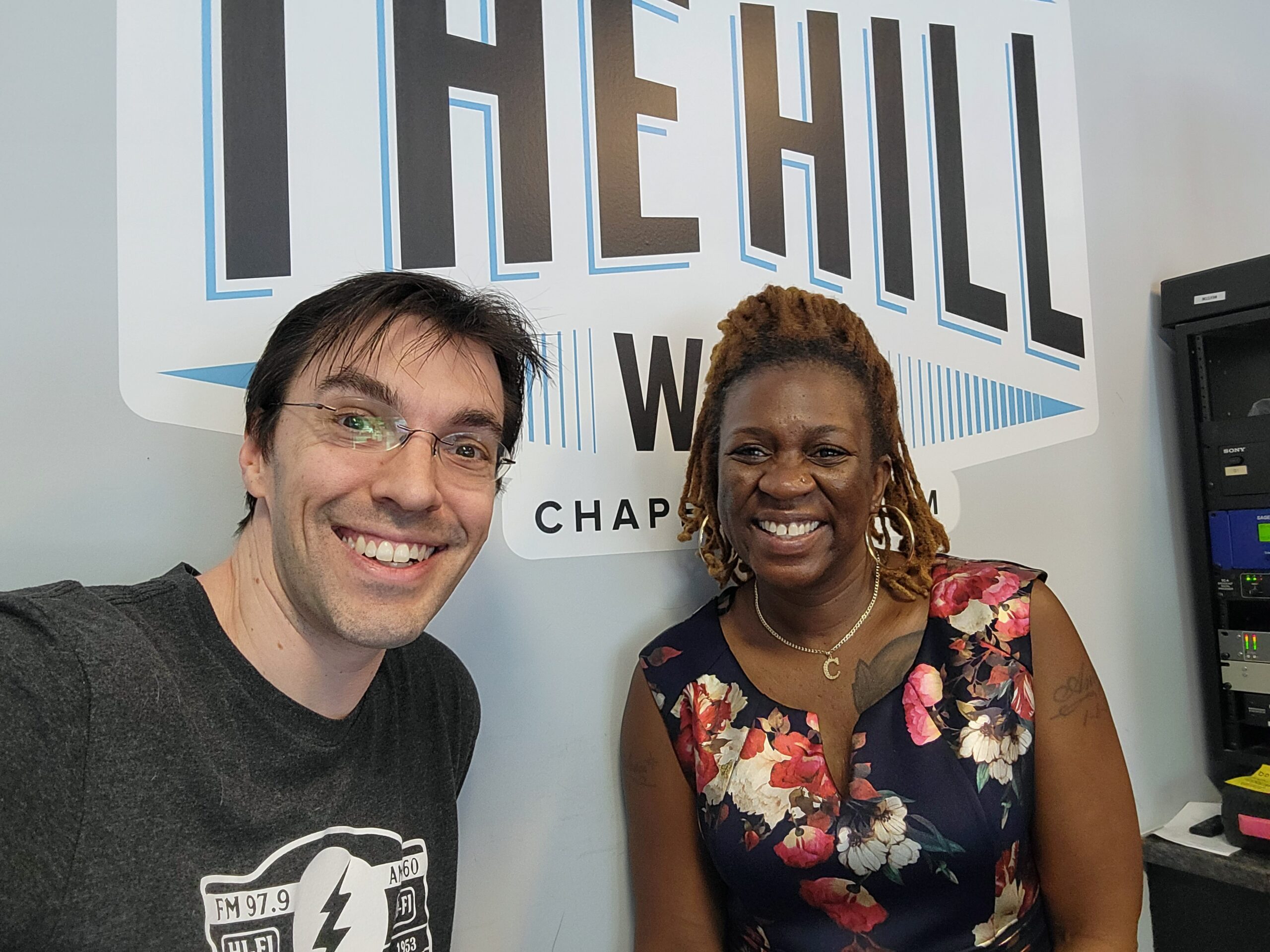The scandal surrounding NFL star Ray Rice this week has sparked a renewed national discourse about domestic violence – a discourse that’s included some commentators wondering why women stay in abusive relationships.
Now, survivors of domestic violence are speaking out about the reasons “why they stayed” (with a #WhyIStayed hashtag on Twitter, created by writer Beverly Gooden) – and local organizations are getting the word out about the resources available to victims of abuse.
Ardith Burkes, interim executive director of the Compass Center for Women and Families here in Orange County, spoke with Aaron Keck this week on “Aaron in the Afternoon.”
Visit CompassCTR.org for information and assistance.
The Ray Rice scandal has actually been simmering for months. Earlier this year, video surfaced of Rice dragging his then-girlfriend Janay Palmer (who was apparently unconscious) out of an elevator in an Atlantic City hotel – disturbing footage that led to a brief suspension by his NFL team, the Baltimore Ravens. Last week, though, the Ravens canceled his contract altogether after new footage went public proving it was Rice himself who’d knocked her unconscious.
The resulting outcry has swirled largely around the NFL’s response – there’s some evidence that league officials knew the full story long ago and failed to act – but the incident also has people talking about the larger issue of domestic violence. Even there, though, the talk hasn’t been about Ray Rice so much as Janay Palmer – who stayed with Rice after the incident and has defended him publicly through the current scandal. (She’s now Janay Palmer-Rice – they’ve since been married.)
Why do women stay? The question is a troubling one, because (intentionally or not) it implies an accusation: ‘if you’re getting abused, it’s your own fault for not leaving.’ That’s been the undercurrent of a lot of the talk around Janay Palmer.
But the truth is – and this is the point of the #WhyIStayed hashtag that’s been trending on Twitter all week – that it’s not easy for a victim (male or female) to escape an abusive relationship.
“He said he’d kill me if I left.”
“I tried to leave the house once after an abusive episode, and he blocked me. He slept in front of the door that entire night.”
“I felt I had nowhere to go.”
“I wanted my ‘family’ to be together.”
“I thought divorce was not an option in my faith.”
“I thought I deserved it.”
“He convinced me that I was worth nothing.”
“Anyone I asked for help told me it was a ‘family matter.'”
“People (were) brushing it off because they didn’t think it was in his character.”
“Because…I didn’t think verbal abuse and emotional manipulation was considered an abusive relationship.”
“There was no money to get out, or place to go.”
The list goes on. Abuse victims stay because they feel powerless, or because in many cases they are powerless, physically or financially; they stay “for the kids”; they stay because they blame themselves; they stay because they have nowhere else to turn, or because the people they turn to refuse to help. And it’s not easy to leave. People often need support to get back on their feet – and for many victims, the abuse and harassment doesn’t end when they walk out the door.
#Why I Stayed Stories Reveal Why Domestic Violence Survivors Can’t “Just Leave”
Why Does A Woman Stay With A Violent Man?
And abuse does not necessarily have to take the form of physical or sexual violence: abuse can also be emotional or verbal as well. Persistent name-calling and threats, emotional manipulation, or controlling access to vehicles, phones, or friends can all constitute abuse, even without physical violence.
What Is Domestic/Family Violence?
But there is help. In our area, the Compass Center for Women and Families offers a 24-hour hotline for anyone experiencing abuse: 919-929-7122. It’s always available. The Compass Center also offers a wide variety of other resources for women and men experiencing abuse – including counseling, safety planning, support groups, and help with emergency shelter placement and domestic violence protective orders. Volunteers and staff members are trained to help victims through the process at their own pace – and the Compass Center offers services for people after they leave as well.
Click here for a list of services available through the Compass Center.
And the #WhyIStayed hashtag reminds us that abuse does not exist in a vacuum – it’s often reinforced by a society that doubts the victim, blames the victim, and refuses to help. That means the responsibility is on us too, not only to be supportive and offer our help when people turn to us in need, but also – before that even happens – to make it clear we WILL be supportive, that we will be allies if we’re ever called upon. Sometimes a supportive friend or family member can make the difference between someone leaving and not leaving – and sometimes the difference hinges on whether the victim believes she’ll find support if she asks for it.
And, of course, it’s also on us not to be abusive ourselves, to teach each other that abuse is never acceptable, to call out abuse when we see it, and not to turn a blind eye.
Because it’s here, in our community. The Compass Center worked with about 1000 victims of abuse last year alone – and as Burkes points out, that number only counts the victims that have sought and found help. There are many more.
If you are a victim of domestic abuse and you need help, call the Compass Center’s hotline at 919-929-7122, or find them online at CompassCTR.org. The Center is always seeking volunteers as well; visit them online to learn more about how you can help.






Comments on Chapelboro are moderated according to our Community Guidelines